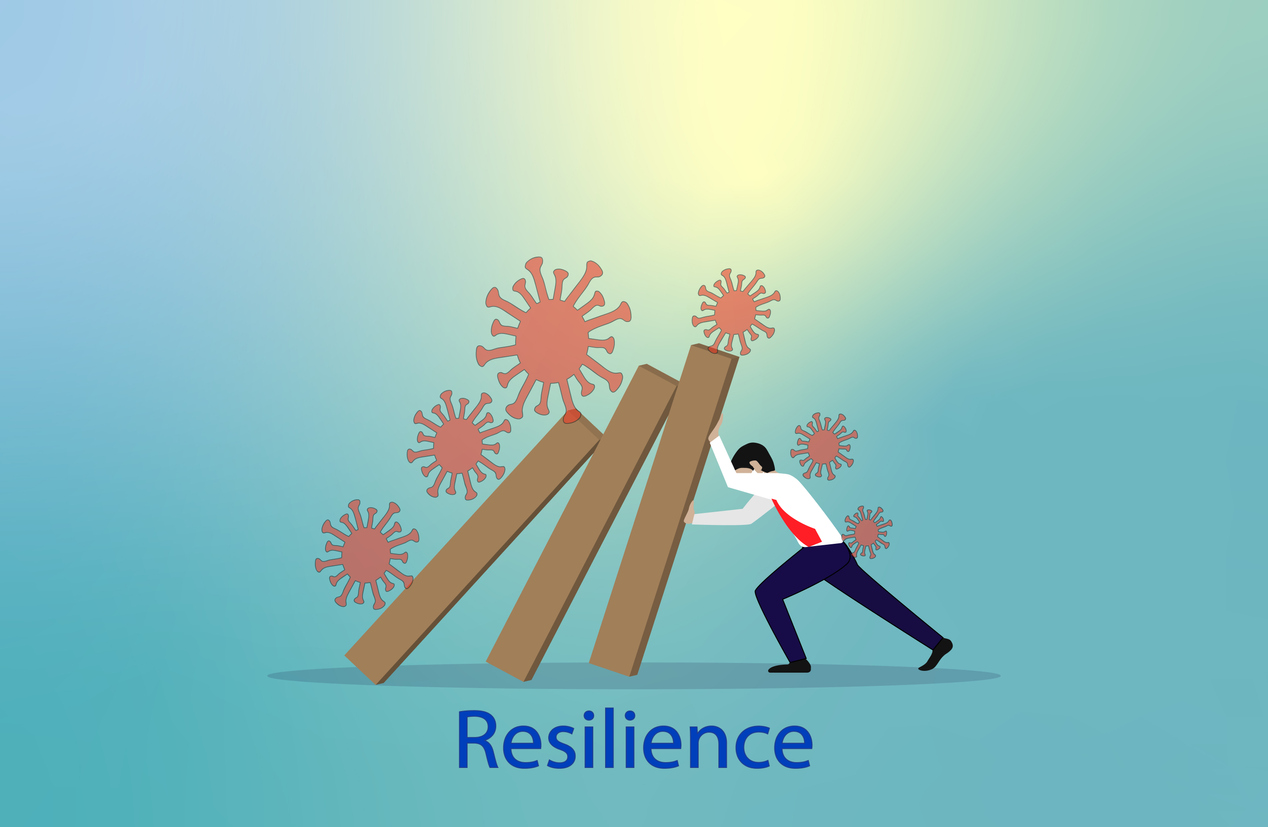Boosting Resilience: Strategies For Mental Wellbeing

Table of Contents
Understanding Mental Resilience
Mental resilience is your ability to bounce back from adversity, stress, trauma, and hardship. It's not about avoiding challenges, but about developing the skills and mindset to cope effectively and emerge stronger. Building resilience is crucial for navigating daily life's inevitable ups and downs, fostering a stronger sense of self, and improving your overall mental health. The benefits are numerous and far-reaching.
Building resilience offers a multitude of advantages:
- Better stress management: Resilient individuals handle stressful situations more effectively, reducing the negative impact on their mental and physical health. They learn to recognize stressors and develop strategies to mitigate their effects.
- Improved problem-solving skills: Resilience fosters a proactive approach to challenges. Instead of being overwhelmed, resilient people identify problems, brainstorm solutions, and take action.
- Increased adaptability to change: Life is constantly evolving, and resilience helps you adapt to new situations and circumstances more easily. This flexibility reduces stress and anxiety related to change.
- Stronger emotional regulation: Resilient people can better manage their emotions, preventing intense emotional responses from overwhelming them. They understand and accept their feelings, responding in healthy and constructive ways.
- Enhanced self-confidence and self-esteem: Successfully overcoming challenges builds self-belief and confidence. This strengthens self-esteem and promotes a positive self-image.
Cultivating Positive Self-Talk and Mindset
The power of positive self-talk cannot be overstated. Your inner dialogue significantly impacts your mental resilience. Negative self-talk—criticism, self-doubt, and pessimism—can undermine your ability to cope with stress. Conversely, positive self-talk fosters optimism, motivation, and a belief in your ability to overcome obstacles.
Techniques for cultivating a positive mindset include:
- Practice mindfulness and self-compassion: Mindfulness helps you become more aware of your thoughts and feelings without judgment. Self-compassion involves treating yourself with kindness and understanding, especially during difficult times.
- Identify and reframe negative self-talk: Learn to recognize negative thoughts and challenge their validity. Replace them with more realistic and positive statements. This is a core principle of Cognitive Behavioral Therapy (CBT).
- Use affirmations to reinforce positive beliefs: Repeat positive statements to yourself regularly to reinforce positive self-perception and belief in your capabilities.
- Challenge perfectionistic thinking: Perfectionism is often a source of anxiety and self-criticism. Strive for excellence, but accept that making mistakes is part of the learning process.
- Practice gratitude regularly: Focusing on what you're grateful for shifts your focus from negativity to positivity, improving your overall mood and outlook.
Building Strong Social Connections
Social support is a crucial pillar of resilience. Strong relationships act as a buffer against stress and adversity, providing emotional support, practical assistance, and a sense of belonging. Knowing you have people you can rely on makes a significant difference in your ability to navigate difficult times. Don't hesitate to reach out for help when needed; it's a sign of strength, not weakness.
Strengthening your social connections involves:
- Nurture existing relationships: Make time for friends and family. Regular communication and quality time strengthen bonds and provide a reliable support system.
- Build new connections through shared activities or groups: Joining clubs, groups, or taking classes allows you to meet like-minded individuals and expand your social circle.
- Seek support from friends, family, or therapists: Talk to someone you trust about your challenges. A therapist can provide professional guidance and support.
- Join a support group related to specific challenges: Connecting with others facing similar challenges can be incredibly helpful and validating.
- Engage in community activities: Volunteering or participating in community events provides a sense of purpose and connection.
Prioritizing Self-Care
Self-care is not a luxury; it's a necessity for maintaining mental wellbeing and resilience. It involves engaging in activities that nourish your physical, emotional, and mental health. Prioritizing self-care equips you to better handle stress and challenges.
Practical examples of self-care include:
- Get enough sleep: Aim for 7-9 hours of quality sleep each night. Adequate sleep is crucial for both physical and mental health.
- Eat a healthy diet: Nourish your body with nutritious foods that provide energy and support overall wellbeing.
- Exercise regularly: Physical activity releases endorphins, reducing stress and improving mood.
- Practice relaxation techniques (meditation, yoga, deep breathing): These techniques help calm the mind and reduce anxiety.
- Engage in hobbies and activities you enjoy: Make time for activities that bring you joy and relaxation.
- Set boundaries to avoid burnout: Learn to say no to commitments that overwhelm you. Protecting your time and energy is vital for your wellbeing.
Developing Coping Mechanisms
Developing effective coping mechanisms is essential for managing stress and difficult emotions. These are strategies you can use to navigate challenging situations and regulate your emotional responses. Building a diverse toolkit of coping strategies allows you to address various challenges effectively.
Effective coping mechanisms include:
- Learn problem-solving techniques: Develop a structured approach to problem-solving, breaking down complex issues into smaller, manageable steps.
- Practice stress-reduction techniques (deep breathing, progressive muscle relaxation): These techniques can help calm your nervous system and reduce feelings of anxiety.
- Engage in healthy emotional expression (journaling, talking to someone): Find healthy outlets for expressing your emotions.
- Develop healthy coping mechanisms for specific challenges: Identify your triggers and develop personalized strategies to manage them effectively.
- Seek professional help when needed: Don't hesitate to reach out for professional support if you're struggling to cope.
Conclusion
Building mental resilience is an ongoing process that requires commitment and self-awareness. By actively cultivating positive self-talk, nurturing strong social connections, prioritizing self-care, and developing effective coping mechanisms, you can significantly enhance your ability to navigate life's challenges and thrive. Remember, strengthening your mental resilience is an investment in your overall wellbeing. Start incorporating these strategies today to boost your mental resilience and experience a more fulfilling and balanced life. Learn more about building your mental resilience and discover additional strategies to improve your mental wellbeing.

Featured Posts
-
 Saskatchewans Political Landscape Federal Election Implications
May 21, 2025
Saskatchewans Political Landscape Federal Election Implications
May 21, 2025 -
 Sofrep News Houthi Missile Attack On Ben Gurion Airport Foiled Russias Amnesty International Ban
May 21, 2025
Sofrep News Houthi Missile Attack On Ben Gurion Airport Foiled Russias Amnesty International Ban
May 21, 2025 -
 Remont Pivdennogo Mostu Analiz Vitrat Ta Vikonavtsiv Robit
May 21, 2025
Remont Pivdennogo Mostu Analiz Vitrat Ta Vikonavtsiv Robit
May 21, 2025 -
 Real Madrid In Yeni Teknik Direktoerue Ve Arda Gueler In Gelecegi
May 21, 2025
Real Madrid In Yeni Teknik Direktoerue Ve Arda Gueler In Gelecegi
May 21, 2025 -
 Jail Sentence Follows Antiques Roadshow Appraisal Of Stolen Goods
May 21, 2025
Jail Sentence Follows Antiques Roadshow Appraisal Of Stolen Goods
May 21, 2025
